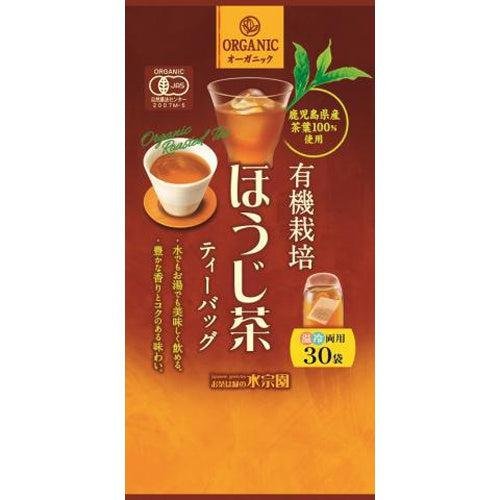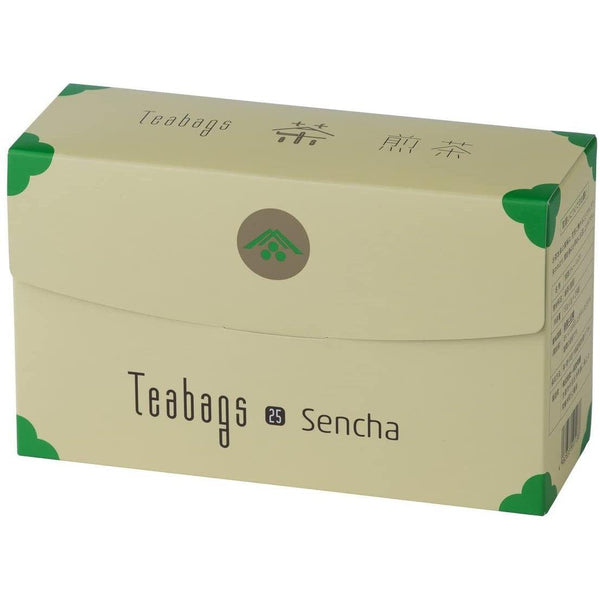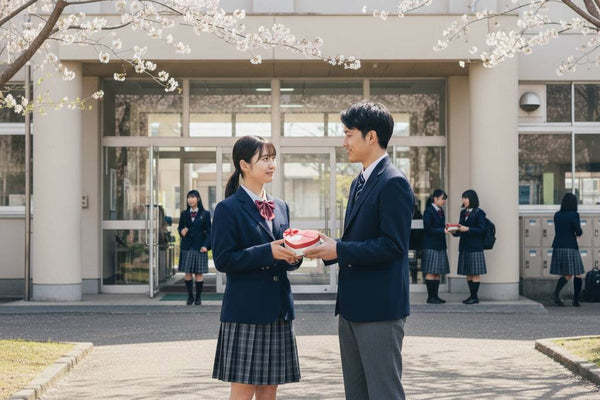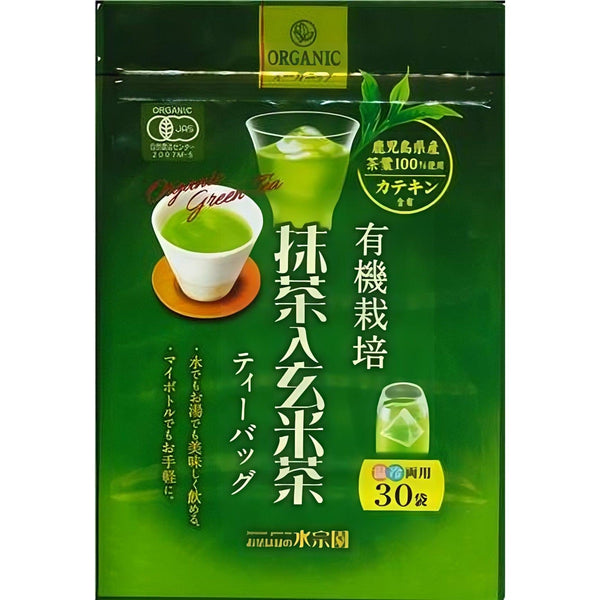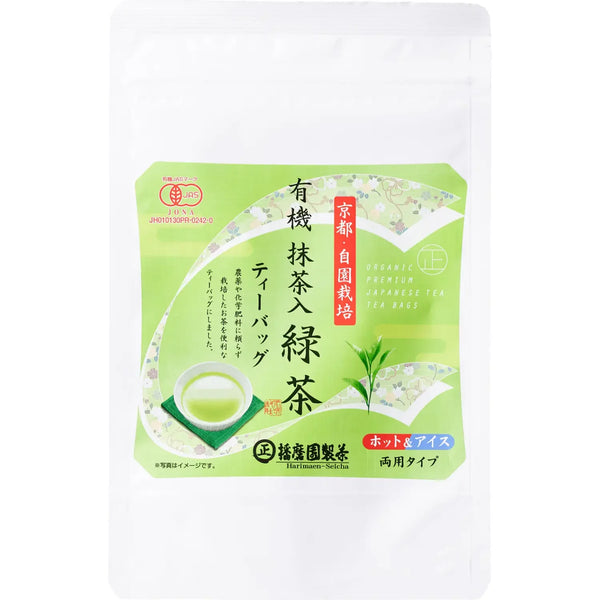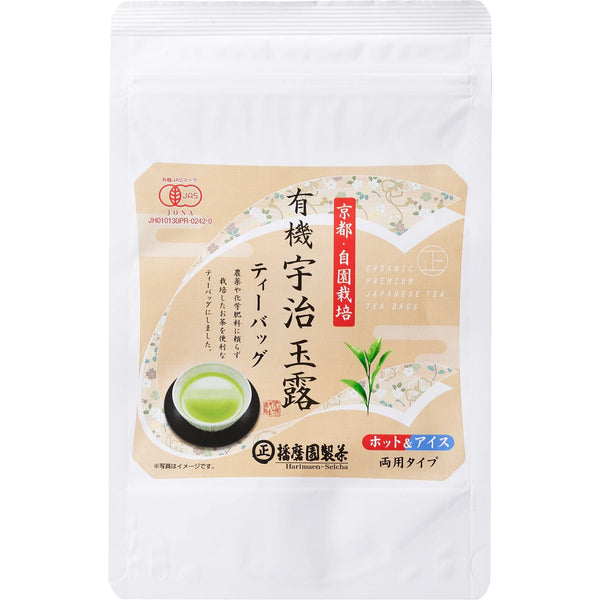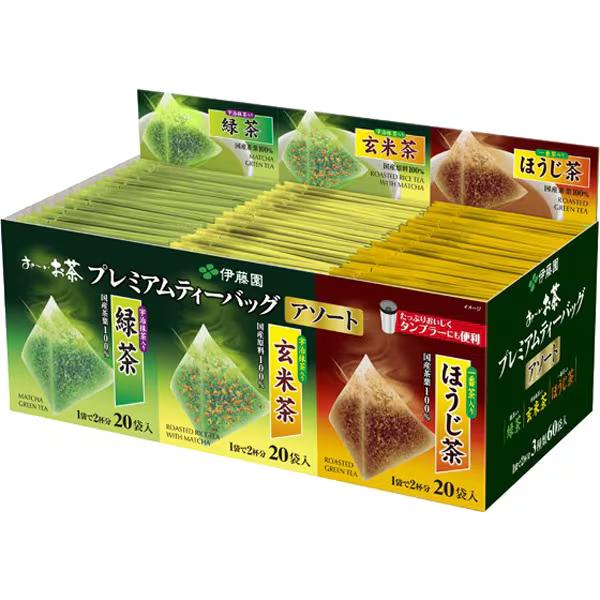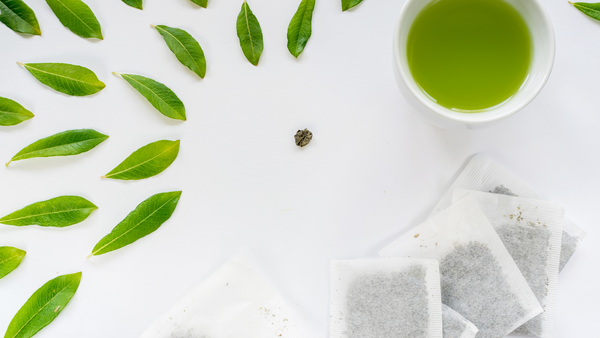
Jump to:
The Japanese tea ceremony, known as chado, also known as chanoyu, or the way of tea, is a fascinating and highly ritualized tradition centered around the serving and drinking of matcha green tea.
This artful practice involves meticulous attention to detail, guiding everything from the decor of the room to the topics of conversation. However, for our daily green tea rituals, many of us prefer the convenience of tea bags, especially when preparing a quick cup for ourselves.
With so many varieties available, how do you select the right one? In this article, we'll delve into the benefits of green tea, explore the different types and their flavors, provide tips for brewing good quality green tea from bags, and guide you in choosing a high-quality green tea bag.
Why Drink Green Tea?
Green tea is an excellent choice for your morning, afternoon, or evening drink because it’s packed with antioxidants like catechins, especially EGCG, which help protect your cells caused by free radicals and lower the risk of heart disease.
In addition to antioxidants, green tea contains caffeine and L-theanine, compounds that can improve mental function, boost mood, and provide relaxation.
This combination gives you a smooth energy lift without the nervousness that often comes with coffee. It also helps reduce stress and anxiety. When paired with exercise, green tea can assist in weight loss by increasing your metabolism and fat-burning rate.
Research indicates that drinking green tea regularly may reduce the risk of certain cancers, though more studies are needed to confirm this.
Green tea also supports bone health by enhancing bone formation, which may reduce the risk of osteoporosis. Its polyphenols have anti-aging properties, helping to lower inflammation and oxidative stress, potentially promoting a longer life.
With low calories and versatility, green tea can be enjoyed both hot or iced, making it a refreshing and healthy alternative to other beverages.
What is the Healthiest Type of Green Tea?
There are various types of green tea, each offering unique benefits. Since green tea does not undergo oxidation, its healthful compounds remain intact. Japanese green and herbal teas can, in particular, differ based on their growing and processing methods.
Matcha is often considered the healthiest form of green tea because it’s made from powdered green tea leaves, giving it the highest concentration of antioxidants and beneficial compounds.
Types of Green Tea
Here is a table summarizing the different types of green tea, their flavor profile, and who they are best suited for.
- Hojicha Tea has a mild, toasty, roasted flavor that’s perfect for those who prefer a gentler tea. It’s ideal for individuals seeking a low-caffeine option that’s easy on the stomach and packed with antioxidants.
- Sencha Tea offers a grassy, fresh flavor with reduced astringency, making it a favorite among green tea enthusiasts. It’s a great choice for anyone who enjoys a traditional, balanced tea and is looking for a perfect daily drink.
- Fukamushicha Tea provides a rich, deep flavor with a darker, cloudy brew due to extended steaming. This tea is perfect for those who prefer a bolder, full-bodied green tea with enhanced flavor.
- Genmaicha Tea has a nutty, roasted flavor with hints of popcorn, thanks to the inclusion of brown rice. It’s perfect for fans of “popcorn tea” who enjoy a unique, savory blend with a toasty character, ideal for a comforting drink.
- Green Tea & Matcha Combo offers umami-rich, smooth, slightly sweet undertones. This tea is best for those seeking a more flavorful and nutritious option with a creamy texture and a gentle energy boost.
- Gyokuro Tea delivers a sweet, rich umami flavor with a smooth, mellow taste. It’s ideal for tea lovers looking for a premium, delicate tea with luxurious depth, perfect for a relaxing and refined experience.
Best Time to Drink Green Tea
The timing of your green tea consumption can enhance its benefits. Many people enjoy a cup in the morning to boost focus and concentration. Classic green teas, such as sencha or fukamushi sencha are great options for your morning routine. If you're seeking a stronger morning pick-me-up, matcha is an ideal choice due to its higher concentration of beneficial compounds.
Drinking green tea before workouts can also be advantageous, as it may increase fat burning and aid recovery. However, it's best to avoid drinking green tea around mealtimes since compounds in the tea can inhibit the absorption of key minerals; instead, try to enjoy it between meals.
Additionally, due to its caffeine content, green tea can disrupt sleep in sensitive individuals, so it's wise to steer clear of it before bedtime.
How we decided
- Flavor ProfileDoes the tea match your taste preference? (e.g., grassy, toasty, nutty, umami-rich)
- Caffeine LevelLow, moderate, or higher caffeine depending on energy needs or sensitivity
- Quality & OriginAuthentic Japanese tea regions (Kyoto, Shizuoka, Kagoshima, Uji) and organic or high-grade leaves
- Convenience & PackagingTea bag type (triangular, tagless), resealable packaging, suitable for hot or cold brewing
Best Green Tea Bags
Whether you prefer the mild toastiness of hojicha or the grassy notes of sencha, each brand brings its unique character and quality. Explore our top picks for green tea brands that cater to every palate.
1. Suisouen Hojicha Tea Bags
If you enjoy the mild, toasty flavor of Hojicha and want a low-caffeine drink that's rich in antioxidants and easy on the stomach, these Hojicha tea bags from Suisouen could be an excellent choice, whether served hot or cold.
Made from 100% organically grown tea leaves from Kagoshima Prefecture in Kyushu, these tea bags come without tags or strings, allowing them to be placed directly in the pot or conveniently carried on the go. They are packaged in a resealable bag to ensure maximum freshness.

2. Ippodo, Arahaten, and Oigawa Sencha Tea Bags
If sencha green tea is more your style, you might enjoy the sencha tea bags from Japanese herbal tea experts Ippodo, based in Kyoto, a renowned tea-growing region. These Sencha tea bags offer a pleasant grassy flavor with reduced astringency, packaged in a charming, antique-inspired paper box. Not only are they a great choice for your daily cup of regular green tea, but they also make an ideal gift for tea enthusiasts.
For those who prefer a deeper flavor, sencha enthusiasts might also appreciate fukamushi-sencha tea bags. Fukamushicha, meaning “deep-steamed tea leaf,” undergoes an extended steaming process that breaks down the tea leaves, resulting in a richer, fuller flavor and a darker, cloudier brew.
Excellent examples of Fukamushicha tea bags from Arahataen in Shizuoka, or another great option from Oigawa, which blends high-grade Shizuoka Fukamushicha with premium matcha powder from Uji near Kyoto, perfect for making cold brew Japanese green tea.

3. Genmaicha Tea bags
If you're a fan of Genmaicha, also known as "popcorn tea," you'll want to explore Suisouen's offering, which blends roasted brown rice with matcha green tea for a nutty, flavorful experience. Made with organic ingredients from Kagoshima Prefecture, these Genmaicha tea bags can be brewed hot or cold. The resealable packaging ensures the tea stays fresh, and the triangular bags are perfect for convenient, on-the-go brewing.

4. Harimaen and Kunitaro Mizudashi Green Tea And Matcha Combo
As seen with Fukamushicha and Genmaicha, teas with lighter flavors are often paired with matcha for several reasons. Matcha enhances the flavor by adding a rich, umami depth to the delicate, sometimes bitter taste of traditional green teas like Sencha or Genmaicha. Its smooth, slightly sweet undertones help balance the flavor, making the tea more enjoyable.
Matcha also boosts the nutritional value of the blend. Since it consists of finely ground whole tea leaves, it delivers a concentrated dose of antioxidants, catechins, and vitamins that regular tea infusions lack, making the tea more potent and nutritious.
The vibrant green color of matcha adds visual appeal, creating a bright and inviting hue, while also giving the tea a creamier texture that complements the lighter notes of other green teas.
Lastly, matcha increases the caffeine content, providing a gentle energy boost without being overwhelming. The result is a well-rounded, flavorful, and healthy blend that appeals to a wide range of tea drinkers.
For more brands of green tea and matcha combinations, consider trying these tea bags from Kyoto-based Harimaen, which offer organic green tea blended with matcha.
You can also explore Kunitaro Mizudashi cold brew green tea bags, which combine Fukamushicha with matcha for a vibrant green color, or Kunitaro’s tea bags featuring powdered green tea with Uji matcha.

5. Harimaen Gyokuro Teabags
Harimaen, a Kyoto-based tea manufacturer, brings the smooth, mellow taste of premium Gyokuro to convenient tea bags. This exceptional gyokuro is grown in Uji and shaded for 20 days, enhancing its sweet, rich umami flavor and deep aroma.

6. Oigawa Assorted Green Tea Bags
If you're having trouble deciding which type of Japanese green tea to try, consider this assorted pack of classic green tea in bags from Oigawa Chaen. A traditional green tea company based in Shizuoka Prefecture, Oigawa Chaen reflects the region's renowned quality and the pristine water sourced from the Oigawa River.
This pack includes 60 tea bags featuring three popular varieties: sencha, genmaicha, and hojicha. With this selection, you can enjoy a delightful range of flavors, from light and grassy to rich and toasty, making it a perfect choice for any tea lover.

How to Prepare Green Tea
Now that you’ve explored the different green tea brands, here’s how to brew your perfect cup.
-
Boil the water: Start by boiling your water. Once it reaches a rolling boil, remove it from the heat and let it cool for about two minutes. This cooling period will bring the temperature down to approximately 80°C (176°F), which is ideal for brewing green tea.
-
Place the tea bag in the cup: After the water has cooled, place your green tea bag into your cup or teapot.
-
Pour the water: Gently pour the hot water over the tea bag, ensuring it's fully submerged.
-
Allow to steep: The steeping time can vary depending on your taste preference. For a standard brew, let the tea bag steep for about 2-3 minutes. If you prefer a stronger flavor, you can extend the steeping time to a maximum of 4 minutes. Avoid steeping for longer than this, as it may result in a bitter taste.
-
Remove the tea bag: Once steeped, carefully remove the tea bag from the cup. Gently squeeze it against the side of the cup to extract any excess liquid.
-
Customize your brew: Green tea is delightful on its own, but feel free to enhance it with a slice of lemon, a touch of honey, or your preferred sweetener if desired. Enjoy your perfectly brewed cup of green tea!
The Healthy Properties of Green Tea in Convenient Tea Bags
We've discovered a variety of green teas to suit different tastes. While some purists enjoy the traditional Japanese tea ceremony, some prefer the convenience of tea bags for a quick cup at home. From the mild hojicha to the grassy sencha and nutty genmaicha, there's a green tea bag for everyone.
Do you have a favorite Japanese green tea bag? Let us know in the comments!




